You’ve probably heard or read about inflection points. The term has a specific definition in mathematics, but it’s also used widely to describe historical or technological events, such as the Industrial Revolution or the creation of the internet – events that changed human existence in some important way. However, you have personal inflection points, too – and when they occur, you’ll need to make the right financial moves. Here are four of the most important of these inflection points, along with suggestions on dealing with them:
- Marriage – When you get married, you and your spouse will need to discuss a variety of financial issues: What assets and liabilities do you each bring to the marriage? Should you combine your finances or continue with separate accounts? Is one of you a “saver” while the other is a “spender”? Do you share similar investment philosophies, or is one of you much more aggressive than the other? You don’t necessarily have to agree on everything, but you should at least try to gain enough knowledge so you can avoid unpleasant surprises, such as hidden debts, and find enough common ground so your household can advance toward your common financial goals.
- New child – When you welcome a new child into your family, you’ll need to make sure you have adequate life insurance. You’ll also want to review the beneficiary designations on any existing insurance policies, as well as on your IRA and 401(k). And if you can afford it, you may want to start contributing to a college fund, possibly using a 529 savings plan, which can provide you with tax advantages as you put money away for your child’s higher education.
- Divorce – It’s unfortunate, but true: Divorce is still pretty common, and it’s neither pleasant nor cheap. You might not be able to avoid some of the costs, such as lawyers’ bills, but if you and your ex-spouse can work together amicably, you both may be able to avoid serious financial disruptions. You’ll need to work out how to divide your financial assets, paying attention to beneficiary designations, which you may well need to change. Also, as a newly single individual, you may need to review and revise your long-term investment strategy to accommodate changes in your goals and your retirement income.
- Retirement – By the time you retire, you will have hopefully been investing in your IRA and 401(k) or other retirement plan for several decades. But once you do retire, you’ll need to determine how much you can afford to withdraw each year from your various retirement accounts. Your withdrawal rate will depend on your age, your asset level and your retirement lifestyle. And you’ll also want to consider other issues: Are you prepared to deal with health care costs? Even with Medicare, these costs may be higher than they were when you were working. And how about your estate plans? Are they up to date? Have you protected your family from the possibility of your estate going through the time-consuming, expensive and public process of probate? You may need to work with your financial, tax and legal advisors to develop an effective estate strategy.
By making smart decisions following your own inflection points, you can ease the transitions in your life – wherever life takes you. This article was written by Edward Jones for use by your local Edward Jones Financial Advisor. Edward Jones, its employees and financial advisors are not estate planners and cannot provide tax or legal advice. You should consult your estate-planning attorney or qualified tax advisor regarding your situation. Support local, independent news – contribute to The Fallon Post, your non-profit (501c3) online news source for all things Fallon. Never miss the local news -- read more on The Fallon Post home page. 



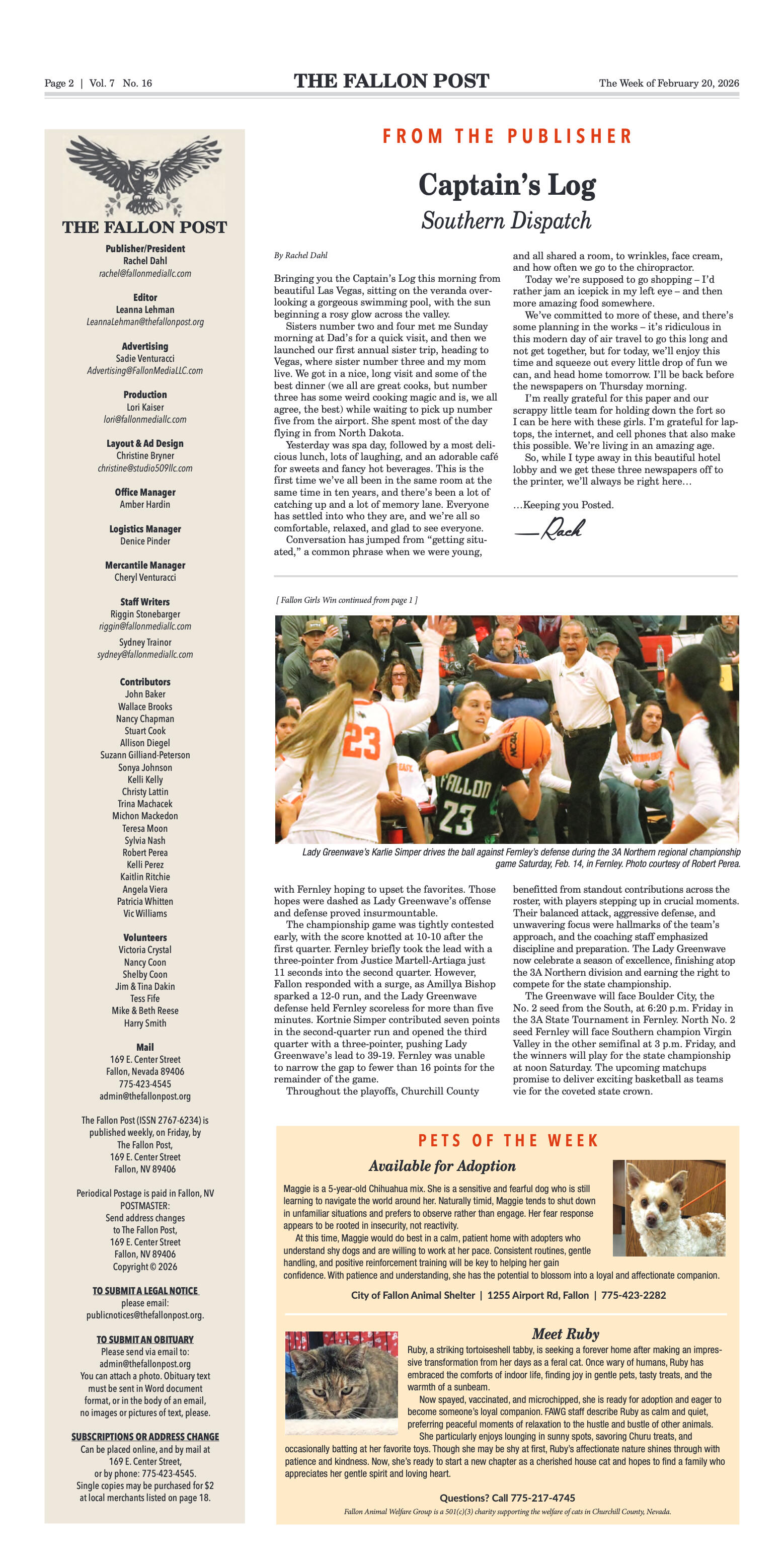

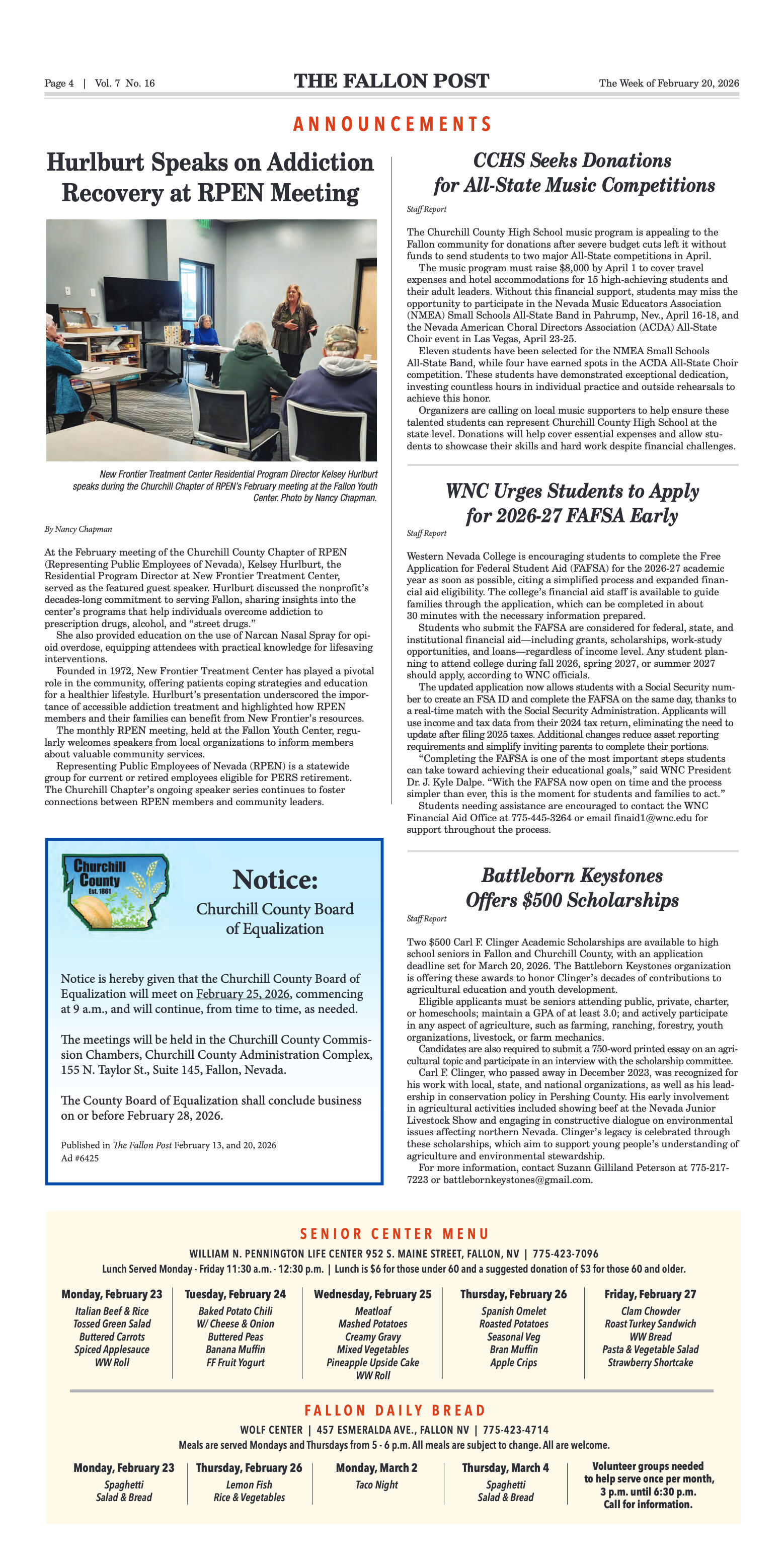
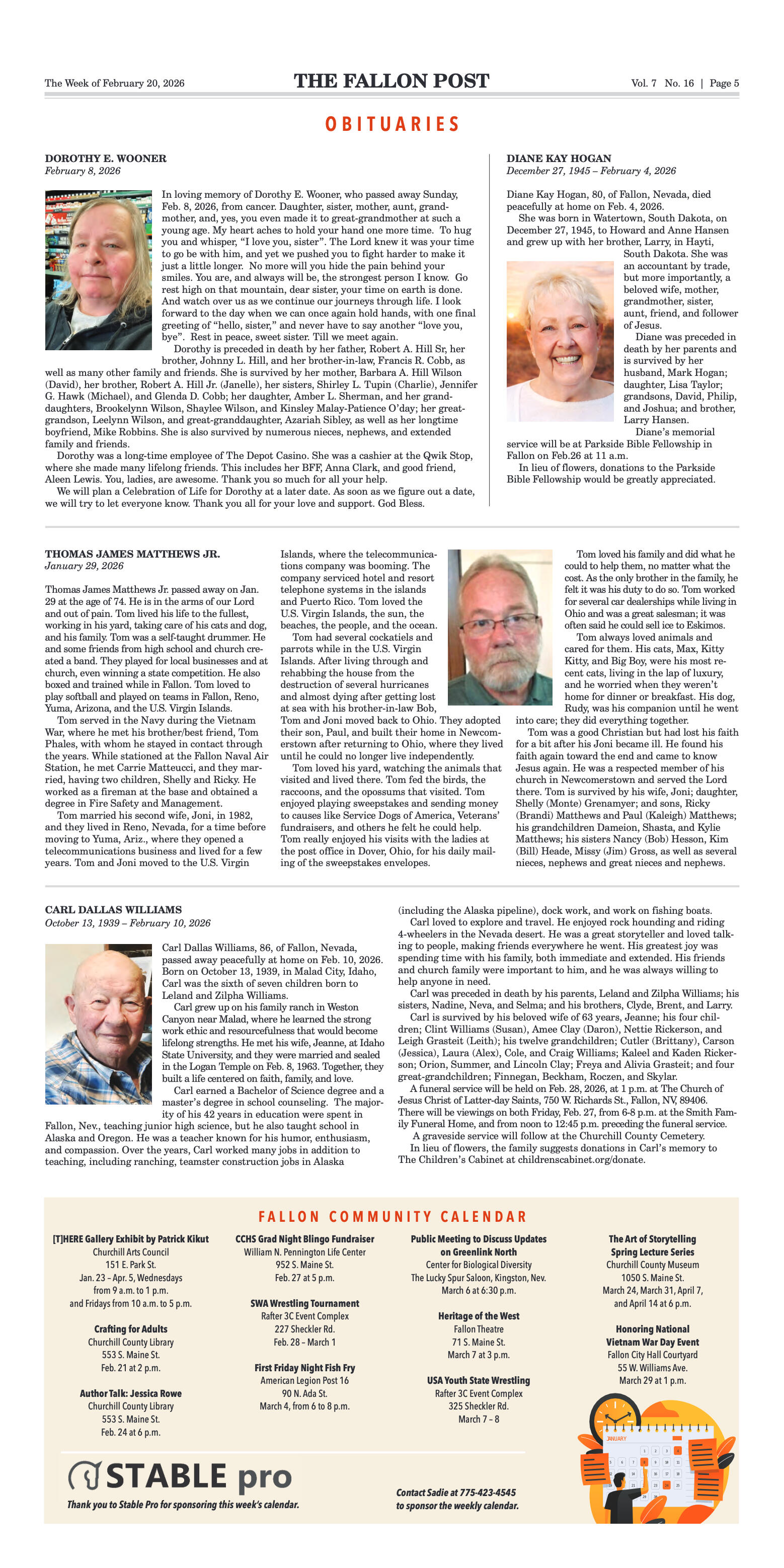
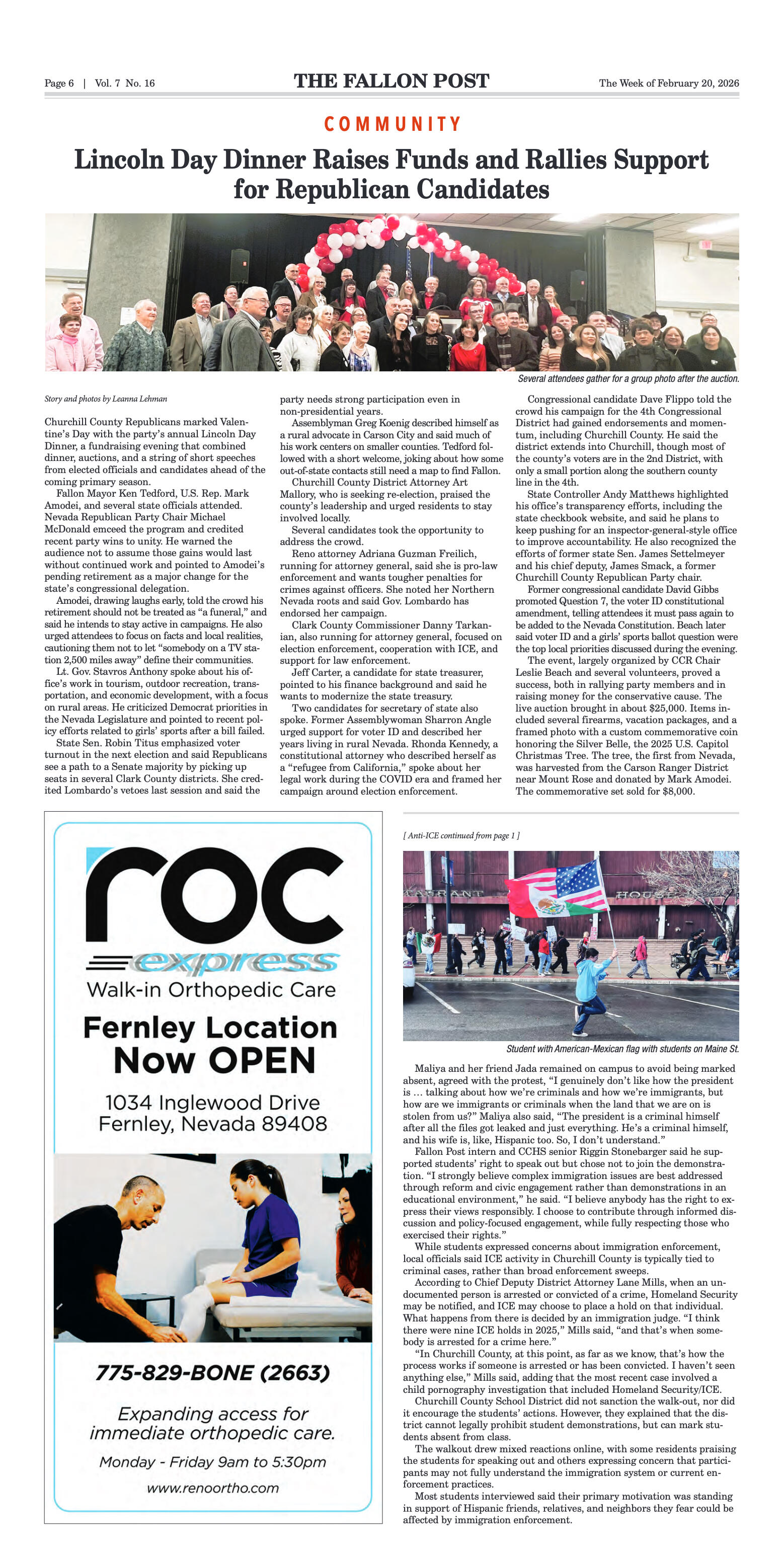


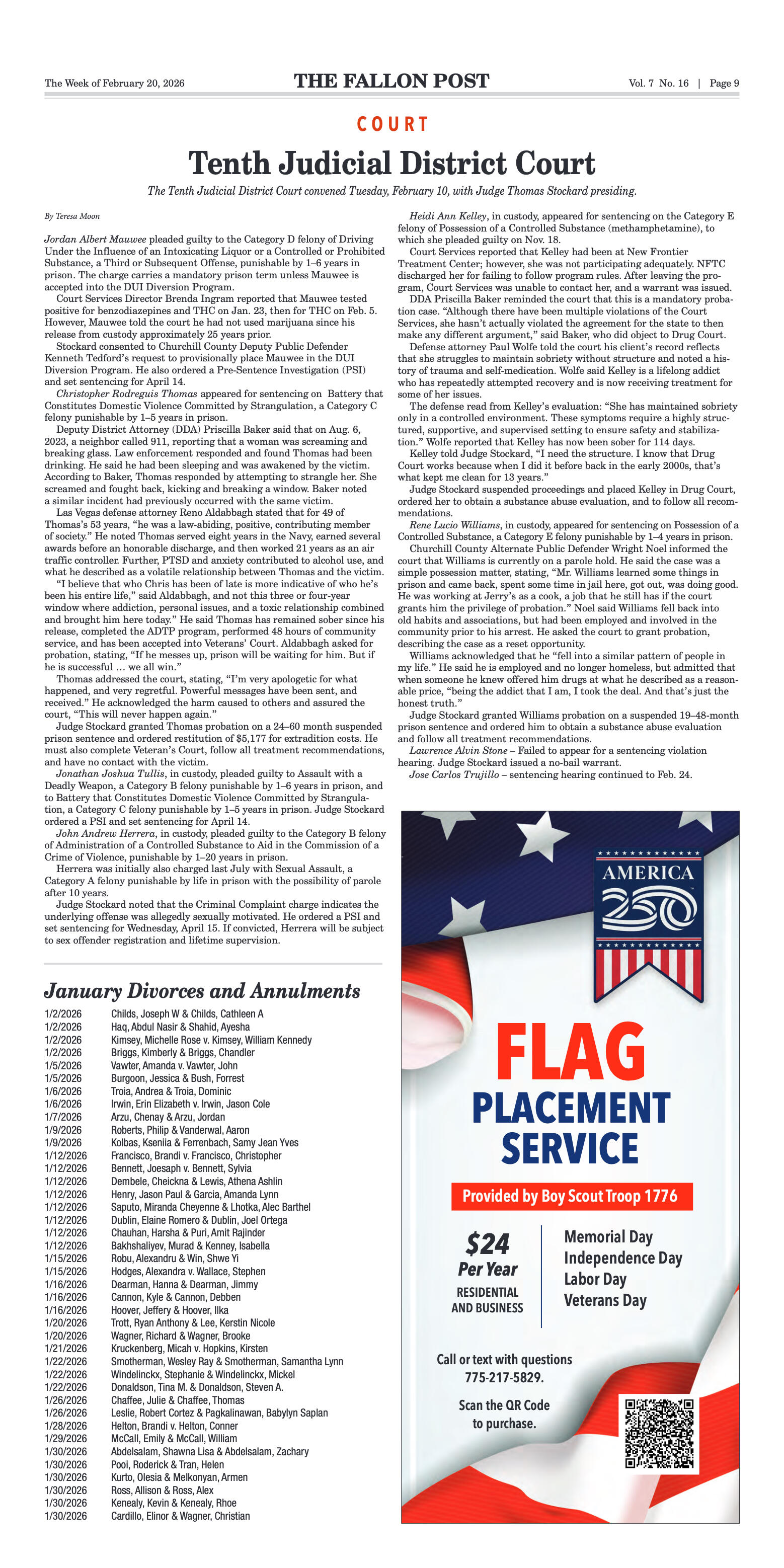

































Comment
Comments